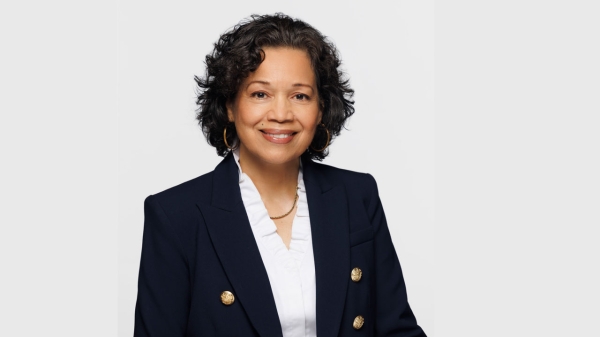Iowa has spoken: What's next in the primary campaign?
ASU political science professor Kim Fridkin on what the Hawkeye State results mean

The first contest of the 2016 presidential election is in the books as the Iowa caucuses closed late Monday night. Sen. Ted Cruz (R-Texas) won the Republican side. And in an incredibly close race on the Democratic side, former Secretary of State Hillary Clinton and Sen. Bernie Sanders (D-Vermont) ended the night in a virtual tie.
On both sides, the campaign thus far has been marked by energy and excitement on the far edges of the parties with less interest in more moderate candidates. As the race continues, Republicans are likely to look for one "establishment" candidate to challenge Cruz, and the Democratic race may be a close contest for longer than many would have expected — much as the Democratic primary in 2008 was.
Kim Fridkin, a professor in ASU's School of Politics and Global StudiesThe School of Politics and Global Studies is an academic unit of the College of Liberal Arts and Sciences. , spoke to ASU Now about what these results in Iowa mean and what we might see next week during the New Hampshire primary.
Question: After several weeks of big crowds and energy for Bernie Sanders, is Hillary Clinton back to being in the driver’s seat for the Democratic nomination?
Answer: The campaign between Clinton and Sanders was incredibly close in Iowa. Sanders is likely to win New Hampshire — because he is almost a native son. But, then the campaign will move to places less favorable to Sanders, such as South Carolina and Nevada. In both states, there are more minority voters than in New Hampshire or Iowa and, at least at the moment, Clinton is more popular with minorities.
Q: Sanders unabashedly calls himself a socialist, which as recently as 2012 was a dirty word in politics. That seems like a remarkable turnaround. How has he managed something like that?
A: I would say that it is surprising that such a liberal candidate did so well in Iowa, although Democratic primary and caucus voters are more liberal than the general-election electorate. I think the reason that being a socialist is not a problem for Sanders is because the bulk of Sanders' votes are among young people and the fear of socialism has faded from the collective memory of Democratic voters in the U.S.
Q: The Republican side has been fascinating. If you had been asked a year ago today whether Ted Cruz and businessman Donald Trump were going to end up one and two in Iowa, what would you have said?
A: I definitely would not have predicted that Donald Trump would be among the top 3 vote getters in Iowa. Ted Cruz’s victory is not quite as surprising since Iowa Republicans have a history of nominating conservative Christian candidates like Rick Santorum in 2012 and Mike Huckabee in 2008. In the Republican primary, you see unhappiness with the Washington establishment. More than 60 percent of the Republican voters caucused for outsider candidates: Cruz, Trump and Dr. Ben Carson. While Sen. Marco Rubio is not viewed as much as an outsider, he is definitely more of an outsider than former Florida Gov. Jeb Bush and Ohio Gov. John Kasich.
Q: Donald Trump has been the story of this campaign, and that story took an interesting turn at the end of last week when he decided not to participate in the final debate before the caucuses. Do you think that cost him a first-place finish in Iowa?
A: I think not participating in the debate didn’t help Trump. Not participating in the debate perhaps indicated to some Republican voters that Trump did not want to deal with the critiques that would be offered by his opponents and by the moderators.
Q: The third-place finish by Florida Republican Sen. Marco Rubio makes him the best-performing “establishment” candidate. Do you think others will drop out and rally around Rubio as an alternative to Cruz and Trump?
A: I think the other establishment candidates will stick through New Hampshire, since New Hampshire is more congenial to these candidates than Iowa. But, if the candidates don’t do well, I do think the mainstream Republican voters will rally around Rubio.
Q: How important is Iowa? The media put a lot of emphasis on it because it is first, but is it representative of who ends up winning the nomination? The White House?
A: Iowa is very important because it is the first contest. But it is definitely not representative of the Democratic or Republican base.
Q: Are you willing to make a prediction for New Hampshire?
A: Sanders wins on the Democratic side and, going out on a limb, I say Rubio wins the Republican race.
More Law, journalism and politics

ASU justice studies students examine fairness of Tempe courts
A courtroom can be an intimidating place, but a group of Arizona State University students want citizens to know it's there to serve them. As part of a course taught by Associate Teaching Professor…

CBS News president to give keynote address at Cronkite School’s spring convocation
Ingrid Ciprián-Matthews, president of CBS News, will serve as the keynote speaker at Arizona State University’s Walter Cronkite School of Journalism and Mass Communication spring 2024 convocation. …

School of Politics and Global Studies director's new book explores mass violence
Why do people commit atrocities and why are certain groups, including religious and ethnic, more vulnerable to large-scale violence? These questions are explored in a new book by Güneş Murat Tezcür…